FOOD STUDIES NEWS
THE NEWSLETTER OF THE FOOD STUDIES PROGRAM
This past year proved to be a successful post-pandemic period for our program, as we were able to offer five out of the six required courses, resulting in seven students completing the necessary requirements for graduation. We are particularly grateful for the invaluable contributions of our adjunct faculty members, Professors David Garcia, John Gillen, Chris Paskoff, and Elyse Zucker, all of whom played a crucial role in delivering the courses.
In this issue of the “Food Studies Newsletter,” we highlight the achievements of our alumni as they continue solidifying their careers in baccalaureate programs in other universities or applying their acquired knowledge to launch businesses. We also recognize the academic achievement of two students who have received this year’s Food Studies Award for their academic excellence in coursework and pursuit of extracurricular experiences for enhancing their professional formation.
This spring semester, our students had the opportunity to attend presentations by renowned professionals in different areas of Food Studies, including Dr. Alfonso Morales, from the Department of Planning & Landscape Architecture at the University of Wisconsin, Dr. Fabio Parasecoli, from the Department of Nutrition and Food Studies at New York University–Steinhardt, and Ms. Karen Washington, a farmer, activist, and co-owner of Rise & Root Farm. These presentations were made possible through a grant from Ms. MacKenzie Scott’s Gift: President’s Initiatives, which was awarded to Professor Flor Henderson for recognizing the importance of providing our students with such exposure. Faculty and students alike wrote reflective statements in response to these presentations.
Furthermore, in our efforts to engage and recruit students, Professor Elyse Zucker and her English students orchestrated an event in her Expository Writing Skills class to raise awareness about plastic profusion in today’s society. Students’ learning about this topic was enhanced by a presentation from Ms. Patti Wood, Director of Grassroots Environmental Education, about her article, “Plastic is the New Coal.” Professor Henderson’s Biology students learned about hydroponic farming while growing leafy greens and aromatic plants in aeroponic tower systems. They presented their work at the Earth Week Celebration. Professor Zucker’s students presented their work on transcendentalism and agro-industrial destruction at the Earth Week celebration and on plastics at their “Zero Waste Day” event.
We are proud of the dedication and hard work of our faculty and students and look forward to continuing to provide high-quality education in Food Studies.
INSIDE:
News from our Alumni
PAGE 2
Food Systems and Healthy Food for All PAGE 3
Award Recipients
PAGE 3
The Food Seminar Series 2023
Food as an Intercultural Bridge and Communicator
PAGE 4
Students’ reflective statements on Karen Washington’s presentation: “Food justice is more than growing food & feeding people”
PAGE 5
Food Studies International Conference Participation
PAGE 6
Teaching English Expository Writing Skills while Raising Awareness about the Plastics Profusion Problem
PAGE 10
Reflective Essay on Raising Awareness about the Plastics Profusion Problem
PAGE 11
Maker Senfis: New York Botanical Garden Urban Foodways Summer 2022 Intern
PAGE 13
Explore: Resources for Students
PAGE 14
Vol. 9 | June 2023
— Flor Henderson Coordinator, Food Studies Program, Summer 2023
NEWS FROM OUR ALUMNI
Alexandra Pisano

Class of 2020
Sustainable Agriculture and Food Systems Major, University of New Hampshire
Alumna Alexandra Pisano is majoring in Sustainable Agriculture and Food Systems at UNH, which is the study of the biological, ecological, economic, and social components of agroecosystems. The B.S. degree program provides an interdisciplinary experience with an emphasis on systems thinking. Students gain a broad base of knowledge and experience in modern agricultural and food systems and a solid foundation in the biological sciences. The degree program is ideal for students interested in developing both a broad base of knowledge and experience in modern agricultural and food systems, and a solid foundation in the biological sciences. Each student develops their own customized emphasis area within sustainable agriculture and food systems: agroecology, horticulture, animal agriculture, agriculture and food systems policy, and entrepreneurship are some examples.
Mariel Carvalho
Class of 2022
Nutrition and Food Studies, New York University — Steinhardt Bachelor of Science
Food Studies alumna Mariel Carvalho completed her first year at the NYU Steinhardt Food Studies program’s Nutrition and Dietetics concentration. This concentration focuses on the role of food, nutrition, and health in society. Integrating knowledge and research into coursework, the curriculum provides an understanding of basic sciences, theoretical and applied aspects of nutrition and dietetics. Mariel also received the Community College Transfer Opportunity Program grant (CCTOP), which is designed for students transferring from partnership community colleges to NYU.
Narell Vasquez
Class of 2023
Food Spark Scholarship, Cornell University
Food Studies alumna Narell Vasquez has been invited to form part of the 2023 cohort of the Food Spark Scholarship initiative organized by Cornell Agriculture and Food Technology Park (Tech Farm) in partnership with the New York State Center of Excellence for Food and Agriculture at Cornell AgriTech (CoE). The Food Spark Scholarship is available to qualified candidates. The 10-week online certificate is designed and led by leading food science experts at the Cornell Food Venture Center (CFVC), based at Cornell AgriTech in Geneva. Course participants will learn how to create a prototype and evaluate the feasibility of a new food or beverage product, control measures needed to create a product, find processing and packaging systems, and develop a framework to bring a product from prototype to market.


2 #hostosfoodstudies
FOOD SYSTEMS AND HEALTHY FOOD FOR ALL
By David Garcia Adjunct Assistant Professor in Food Studies
In a recent event organized by our Food Studies Program and sponsored by Ms. MacKenzie Scott’s Gift: President’s Initiatives, we had the privilege of hosting a renowned guest speaker, Dr. Alfonso Morales. Dr. Morales, an esteemed expert in the field, provided us with invaluable insights and perspectives on the challenges and opportunities within food systems. This article will explore the key highlights from the presentation.
1. Understanding Food Systems: Dr. Morales started his seminar by deconstructing the intricate web of food systems, emphasizing the interdependence of various components such as production, distribution, consumption, and waste management. He highlighted the significance of recognizing the social, economic, and environmental dimensions of building sustainable food systems.
2. Challenges and Disparities: He shed light on the existing disparities and challenges within our food systems, particularly in terms of access to healthy food. Dr. Morales emphasized that while many communities struggle with food insecurity, others face issues such as food deserts, where nutritious options are scarce. This is most seen in communities of color, where inequities exist that affect access to healthy food options. This alarming reality reinforced the need for collaborative efforts to address these inequities.
3. The Power of Local Initiatives: Our speaker shared inspiring examples of local initiatives that have successfully tackled food system challenges. He highlighted the importance of community gardens, farmers’ markets, and urban farming projects in promoting access to fresh and nutritious food. These initiatives not only enhance food security; they foster a sense of empowerment and create community among members in the area.
4. Collaborative Solutions: Lastly, Dr. Morales emphasized the need for collaborative solutions involving policymakers, academics, activists, and communities. He encouraged our students to engage in advocacy and support policies that prioritize healthy food access, promote local and sustainable agriculture, and address food waste.
The session with our guest speaker was a resounding success. The insights on the challenges, solutions, and opportunities within food systems left a lasting impact on our students and faculty who attended. He stressed the importance of collaboration to create positive change and ensure healthy food for all. Inspired by our guest speaker’s message, we should take this knowledge and actively contribute to building more equitable and sustainable food systems in our communities and beyond!
AWARD RECIPIENTS 2023
FOOD STUDIES AWARD
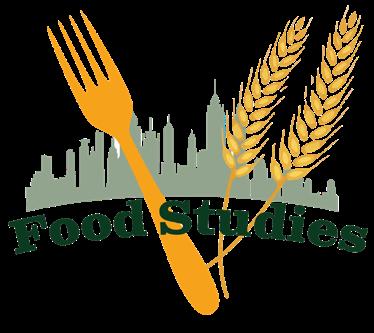
Josephine Silva was awarded the Food Studies Award from the Natural Sciences Department. In addition, Josephine has been awarded a CUNY Black, Race, and Ethnic Studies Initiative (BRESI) Fellowship, working with Professor Lara-Bonilla and the Latin American Writers Institute. In her last semester, Josephine worked as an intern at GrowNYC – a recognized organization with a mission to improve New York City’s quality of life through environmental programs that transform communities block by block and empower all New Yorkers to secure a clean and healthy environment for future generations. Josephine’s capstone project was focused on environmental aspects of the NYC food system, including nutrient cycling through community composting. She has pending applications for transfer to baccalaureate degree programs at the University of Virginia and at the College of William & Mary in Virginia.
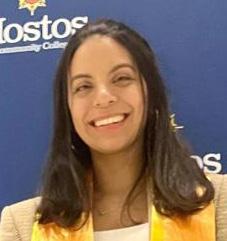
ENVIRONMENTAL STEWARDSHIP AND COMMUNITY SERVICE AWARD
Narell Vasquez received the Food Studies Award from the Natural Sciences Department and the 2023 Scholastic Award. In 2022, Narell was awarded the Environmental Stewardship and Community Service Award. She also conducted research on the topic: “Plant-based Proteins for an Evergrowing Consumer Demand and Hydroponic Propagation of Selected Legumes” and presented the progress of her research at the 2022 12th International Conference in Food Studies. That same year, she served as the Vice President of the Food Studies Club. In addition to her academic achievements, Narell runs a startup business sourcing sustainable and environmentally conscious food choices. Currently, she is working towards a certification at the eCornell Food Product Development Program, sponsored by the Cornell Agriculture and Food Technology Park in partnership with the New York State Center of Excellence for Food and Agriculture at Cornell AgriTech.
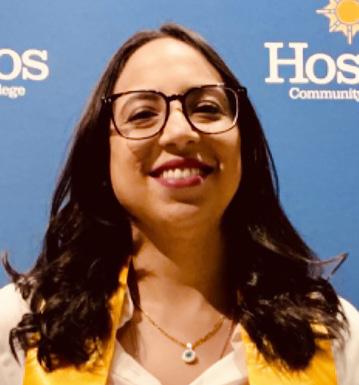
FOOD STUDIES NEWS 03
1 2 3 4
THE FOOD SEMINAR SERIES 2023
FOOD AS AN INTERCULTURAL BRIDGE AND COMMUNICATOR
Flor Henderson, Coordinator of the Food Studies Program
The Food Studies Seminar series was sponsored by a Ms. McKenzie Scott’s Gift: President’s Initiative grant. The goals of this initiative were to strengthen the relevance of the A.S. Degree in Food Studies in our college and community and engage students with inspirational leaders in Food Studies to connect to the college community. It would accomplish this feat by bringing its message about the food system and its ramifications in a multicultural society, as well as conveying that food and food-related issues generate conversations capable of building relationships between people from diverse cultural groups.
Three guest speakers were invited to share their passion for food studies and its ramifications through presentations in areas ranging from culture, to policy, and production. Different groups of students taking Biology, Food Studies, and English classes, as well as other members of the college community, attended the virtual presentations of our guests:
Dr. Fabio Parasecoli
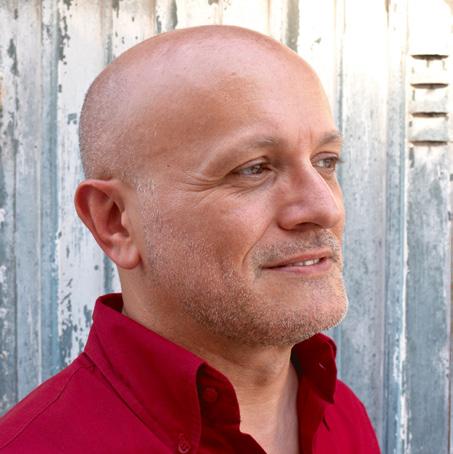
Fabio Parasecoli is Professor of Food Studies at New York University, Steinhardt, and a fellow at the Institute of Philosophy and Sociology of the Polish Academy of Sciences. His research explores the cultural politics of food, particularly in media, design, and heritage. He studied East Asian cultures and political science in Rome, Naples, and Beijing and earned his doctorate in Agricultural Sciences at Hohenheim University, Germany. Recent books include “Al Dente: A History of Food in Italy” (2014), “Feasting Our Eyes: Food, Film, and Cultural Citizenship in the US” (2016, coauthored with Laura Lindenfeld), “Knowing Where It Comes From: Labeling Traditional Foods to Compete in a Global Market” (2017), “Food” (2019), “Global Brooklyn: Designing Food Experiences in World Cities” (2021, co edited with Mateusz Halawa) and “Gastronativism: Food, Identity, Politics” (2022).
Dr. Alfonso Morales
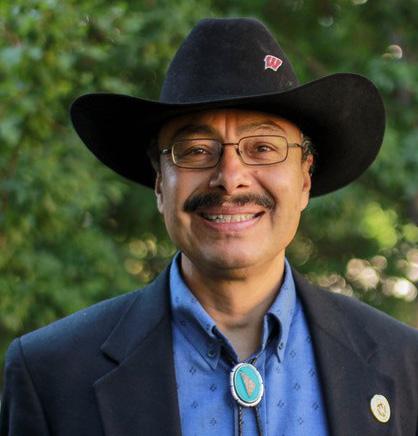
Alfonso Morales (Ph.D. Sociology, Northwestern) is Vilas Distinguished Achievement Professor in the Department of Planning and Landscape Architecture at the University of Wisconsin – Madison. He is also Chair of the Department of Planning and Landscape Architecture. Originally from rural New Mexico with roots in family farming there as well as in West Texas, he is a researcher, advocate, and practitioner/consultant on food systems and public markets. He is PI, Co-I, or Key Participant of $32M in grants and contracts from NSF, USDA, and NIH. He co-created the USDA Local Food Economics toolkit and co-founded farm2facts.org (from the AFRI Metrics and Indicators for Impact), a suite of tools for collecting, analyzing, and reporting on local foods data.
Ms. Karen Washington
Karen Washington is a farmer and activist. She is Co-owner/ Farmer at Rise & Root Farm in Chester, New York. An activist and food advocate, in 2010, she co-founded Black Urban Growers (BUGS), an organization supporting growers in both urban and rural settings. In 2012, “Ebony” magazine voted her one of the 100 most influential African Americans in the country, and in 2014, she was the recipient of the James Beard Leadership Award. In 2020 Essence magazine named Karen Washington one of their Essential Heroes recipients, and in 2021 “Forbes” magazine named her one of their “50 over 50: Impact” list of women making a difference. Ms. Washington serves on the boards of the New York Botanical Gardens, Soul Fire Farm, the Mary Mitchell Center, the Black Farmer Fund, and Green Workers Cooperative.
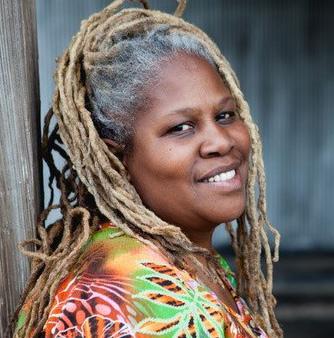
4 #hostosfoodstudies
Students’ Reflective Statements on Karen Washington’s Presentation: “Food justice is more than growing food & feeding people.”
Sharifa Johnson Student BIO 130 Plants and Society
Karen Washington is a farmer and activist. She is the co-owner and farmer at Rise & Root farm in Chester, New York. On her presentation she shared her experiences and an activist and food advocate. Although neither her parents nor anyone in her family were farmers, in 2020 she co-founded Black Urban Growers (B.U.G.S), an organization supporting growers in both urban and rural settings. She wanted to see a change in the food system, starting with what kind of food we put in our bodies and learning how these are grown.
Many times, we are not truly knowledgeable about the foods we consume. We know that a lot of the food we buy has GMOs (Genetically Modified Organisms). And these products are easier to obtain due to better marketing strategies and product presentation in general. Karen spoke about farming spaces in New York City that we could rent for just $400 and grow our own food. However, demand for housing in the city has made these spaces less available. She mentioned several such locations in our area. I was surprised to find out that there is a garden in an area I walk past 116th Street on the 6 line. The place is called the Urban Garden Center. It has been there for many years and is open to the public from 10 a.m. to 7 p.m. every day. In the summer, they have all types of festivities to teach the people in the community about plant life and how to garden.
I liked the presentation a lot. It is very inspiring when you see people of African American background in this field because a lot of times when it comes to healthy eating, we are number one in contributing to unhealthy eating practices. We need more classes to teach us about healthy eating so more people can be proactive. Our lives are on the line, and we need to know whether anything we put into our bodies is beneficial to us.
Melanie Villavicencio Student BIO 130 Plants and Society
Through this virtual presentation, we had the opportunity to understand the nutritional needs visually and orally in our community. Ms. Washington pointed out how the South Bronx is extremely affected by the lack of access to nutritious food options because of the demanding need for affordable housing and proper education. Her work focuses on supporting the workers and their rights to farm. She spoke up loudly about the injustice of housing and the health conditions our communities face. In this context, youth leadership is one of her big accomplishments. She spoke about her family, who never knew how to farm, but seeing the malnutrition that surrounds us gave her the splendid idea of starting something transformative and being recognized for that. Through a slide show, Ms. Washington described to us the fact that the number of chain restaurants is increasing in poor communities, just as health conditions such as asthma and diabetes are rising. These health conditions are taking a toll on families and young children. She reminded us that education on proper food choices is especially important as our children are the future.
As a fellow citizen and reflecting on Ms. Washington’s presentation, I have been taking care of my health and focusing on what I am eating. I remember a phrase that Ms. Washington repeated several times, “if you cannot pronounce the name or the ingredient, you should not even bother buying it.” We must be more thoughtful and responsible about our food choices and health. It is outrageous to see junk food restaurants everywhere. We can go to McDonald’s and think that the food they offer has filled us up. It can be great for the moment, but it can affect our health in the long run. I am the type of person who has been in and out of hospitals. For that reason, I have been more cautious about what I eat and where I eat.
This presentation taught me a lot, and it guided me in the right direction. Ms. Washington mentioned that our ancestors are a walking encyclopedia. They have experience and valuable cultural traditions, and no one knows it better than them. I went to my grandmother and my mother for answers and to learn more about their traditions and knowledge. I think that as the community is filling up with people and more buildings and limiting places for enjoyment, we need to provide our children with agricultural values instead of relying too much on technology.
FOOD STUDIES NEWS 05
These submissions are taken from students’ larger essays submitted as a requirement for the course BIO 130 Plants and Society.
FOOD STUDIES INTERNATIONAL CONFERENCE PARTICIPATION
By Flor Henderson, Coordinator of the Food Studies Program
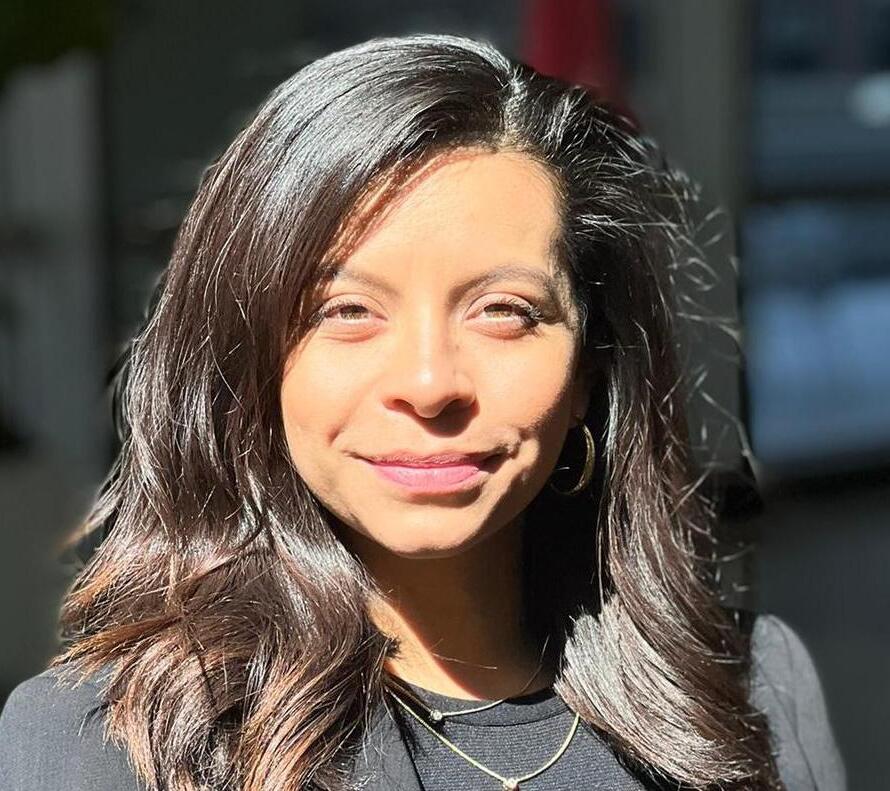
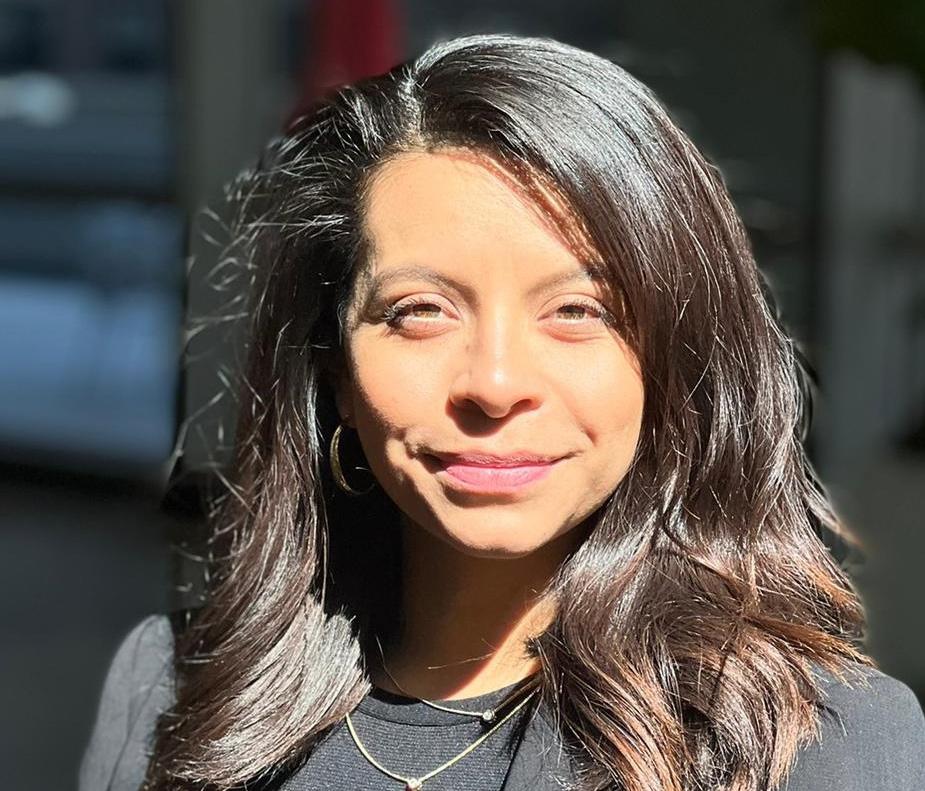
The Twelfth International Conference on Food Studies is organized by the Food Studies Research Network. The aim is to bring together professionals interested in exploring new possibilities for sustainable food production and human nutrition and the associated impacts of food systems on culture across the globe. This year, the conference was held at Marymount Manhattan College in New York City. One of our Food Studies students presented at the event.
PLANT-BASED PROTEINS FOR AN EVER-GROWING CONSUMER DEMAND AND HYDROPONIC PROPAGATION OF SELECTED LEGUMES
options and contributing to the planet’s wellness. The project consisted of understanding the operations of the food system, the supply chain involved in the creation of a new product, and testing new legumes to increase the diversity of plant-based food products of FOB. The goals of Full of Beans Kitchen LCC are to make FOB products a single platform for people looking for high plant-protein products derived from legumes by supplying nutritious food to households across the U.S., all while protecting the environment; to create more food options for breakfast or snacks; and to reduce food miles by propagating selected beans indoors using hydroponic systems. The attraction of urban farming as one of the solutions to food insecurity and land scarcity can be addressed by hydroponic urban farming, one of the key solutions to global food insecurity and land scarcity inside urban areas (Tagle, 2018). The experimental portion of the project was conducted at the Hydroponic Lab of Hostos Community College.
By Narell Vasquez, A.S.
Studies Student
Full of Beans Kitchen, LLC (FOB) was founded in August 2021. FOB is a startup company that creates plantbased products. Food and Sustainability principles are a cornerstone of this initiative. FOB aims to simplify the access and consumption of beans and other legumes and elevate their benefits through whole and natural products while offering healthy and environmentally conscious food
DESIGNING THE PRODUCT
The establishment of the company took approximately twenty-two months from conception to the point of launch. Ideation: The initial idea was born as an answer to a personal necessity, namely the need to incorporate beans/legumes into daily foods that could help boost protein and iron intake. The company was incorporated as an LLC (Limited Liability Company) in July 2021. Formulation: This stage involved testing flour of different beans and other legumes in the kitchen and incorporating fava beans. Over the course of 11
6 #hostosfoodstudies
Food
Mentor: Dr. Flor Henderson
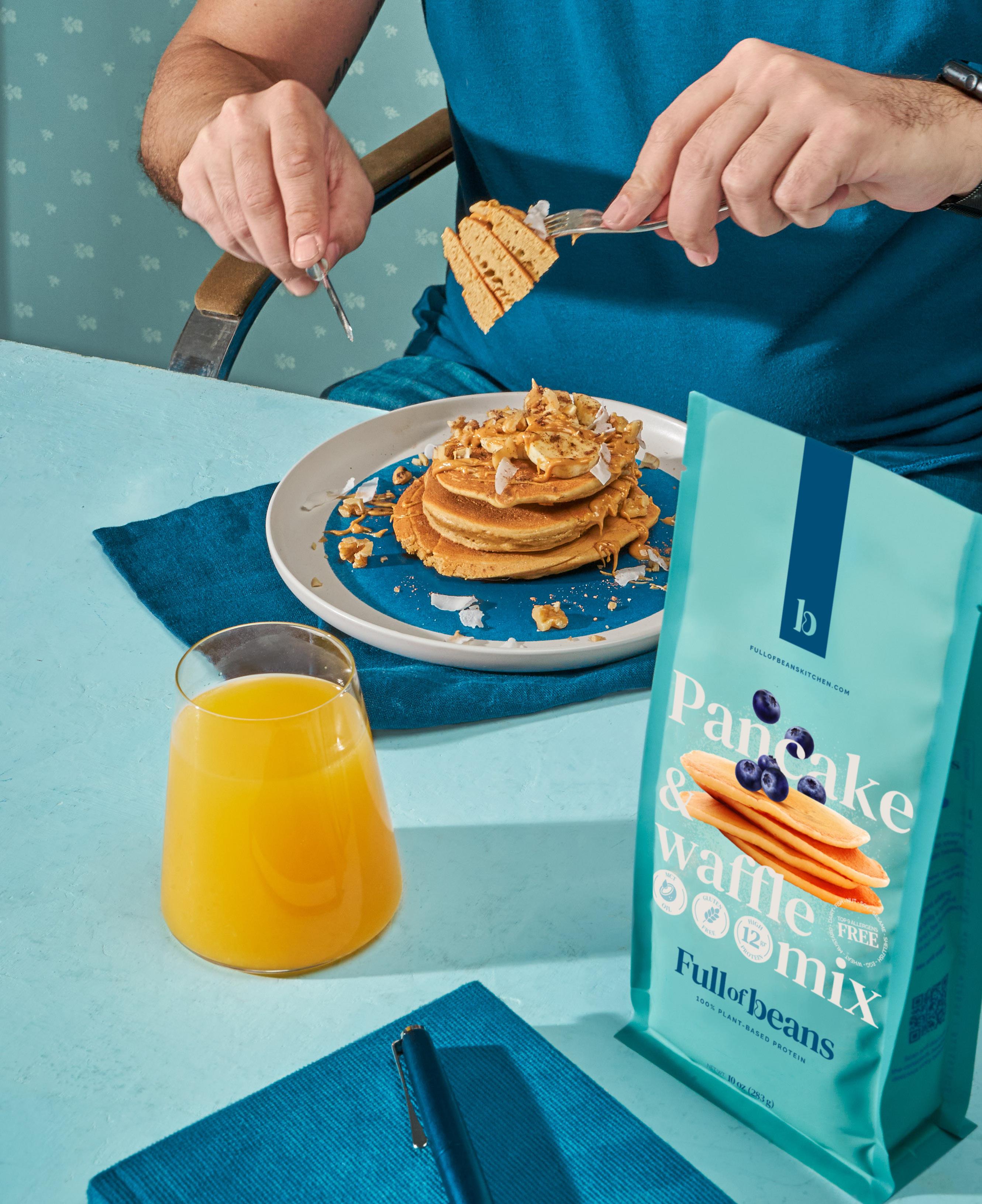
FOOD STUDIES NEWS 07
Full Of Beans Pancake & Waffle Mix.
months, several hundred formulations with retail ingredients were tested until finding the final ready-to-be-scale formula. Processing: This stage included a collaboration with a co-packaging company that makes the blend, as well as the search for a supplier of fava flour. After two additional sampling rounds, the final formula was ready for production. Sampling process: The formula was created at home and tested among friends to obtain information about smell, taste, texture, and use. (Figure 1) Packaging and Distribution: After successful testing, a co-packaging company was found to blend the product on a large scale. Logistics companies will send the products directly to the consumer or businessto-business. Launching: The product was launched in April 2023. The aim is to sell the product through retail stores and directly to consumers through the company’s website and platforms like Amazon.
Two species of legumes have been selected due to their popularity and availability. Fava bean, Vicia fava L., one of the oldest beans consumed by humanity. The nutritional contents include various important components in a human diet. According to Ayala-Rodriguez et.al (2022), fava bean polyphenols and non-polyphenol protein flour show higher digestibility and high protein contents. Jack bean, Canavalia ensiformis L. is a good source of protein, carbohydrates, and minerals. The beans also contain antinutritional and toxic factors, including trypsin inhibitors and cyanogen glycosides. However, properly processed jack beans could be consumed as flour (Karoli et.al, 2017)
The results of the propagation of these plants were inconclusive. Seed germination required a lengthy period; some seeds were not viable, and some contained contaminants that threatened neighboring plants. This phase needed a period of experimentation longer than a fifteenweek semester. However, the potential for growing annual plants remains pending for future interested researchers.

FUTURE PLANS
The future plans include launching a higher protein pancake mix focused on sports nutrition, offering other snack/breakfast food options, and creating pages on Pinterest, Twitter, LinkedIn, and YouTube. The focus on social media will help FOB build awareness and credibility, allow it to communicate directly with prospective clients and understand their needs, and continue exploring the possibility of growing the legumes in drip systems/hydroponics to facilitate accessibility to the beans and to keep production local.

ACKNOWLEDGMENTS
The author is grateful to Mr. Mitchell Zaretsky, Professor Flor Henderson, Karin Contreras, Jerry Rosa, and Alvaro Merino, for their support at different stages of my project.
8 #hostosfoodstudies
Presentation of Full of Beans products.
Hydroponic setting with fava beans.
LIST OF REFERENCES
Ayala-Rodriguez, Victor Andrés; Lopez-Hernandez, Abad Arturo López-Hernández; Lopez-Cabanillas, Manuel; Gonzalez-Martinez, Blanca Edelia; Vasquez-Rodriguez, Jesús Alberto. 2022. Nutritional quality of protein flours of fava bean (Vicia faba L.) and in vitro digestibility and bioaccessibility. Food Chemistry: Vol. 14: 30 (https://doi. org/10.1016/j.fochx.2022.100303)
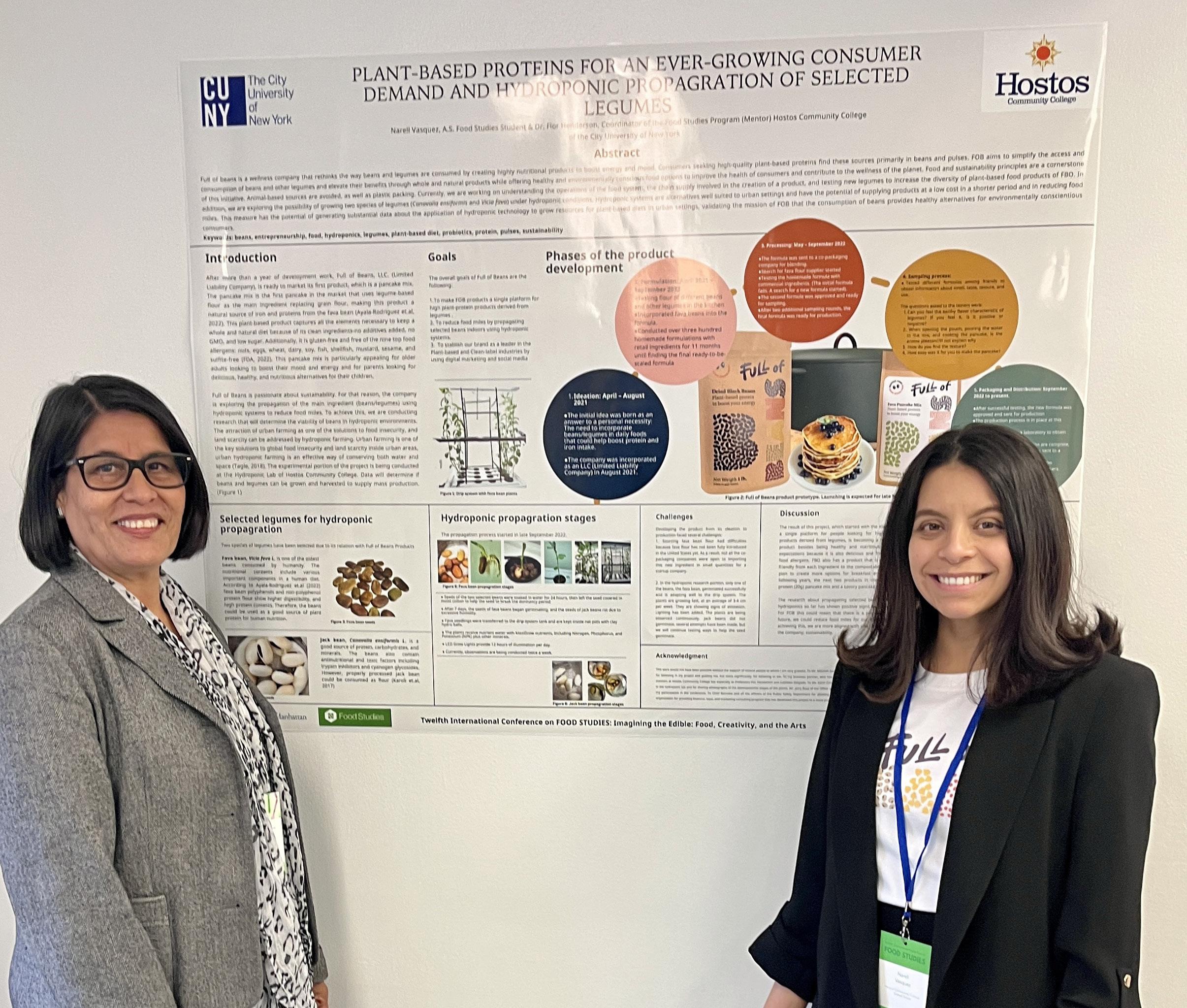
Food and Drug Administration. United States Government, 23 June 2022, www.fda.gov/food/food-labeling-nutrition/ food-allergies.
Karoli, Nakaaya; Sumari, Jakaya O, and Marealle, Hasheem. 2017.Utilization of jack beans (Canavalia ensiformis L.) for human consumption in Tanzania. International Jour-
nal of Agriculture and Food Security. Vol. 3 (3), pp. 039049 (https://www.advancedscholarsjournals.org/ © Advanced Scholars Journals)
Tagle, Sean; Benoza, Hans; Pena, Rica; and Oblea, Aleeza. 2018. Development of an Indoor Hydroponic Tower for Urban Farming. Presented at the 6th DLSU Innovation and Technology Fair. De La Salle University, Manila, Philippines. (https://www.dlsu.edu.ph/wp-content/uploads/pdf/conferences/ditech/proceedings/volume-3/paper-10.pdf)
FOOD STUDIES NEWS 09
Professor Flor Henderson and her mentee Narell Vasquez and at the Twelfth Conference on Food Studies.
TEACHING ENGLISH EXPOSITORY WRITING SKILLS WHILE RAISING AWARENESS ABOUT THE PLASTICS PROFUSION PROBLEM
By Elyse Zucker, Associate Professor of English
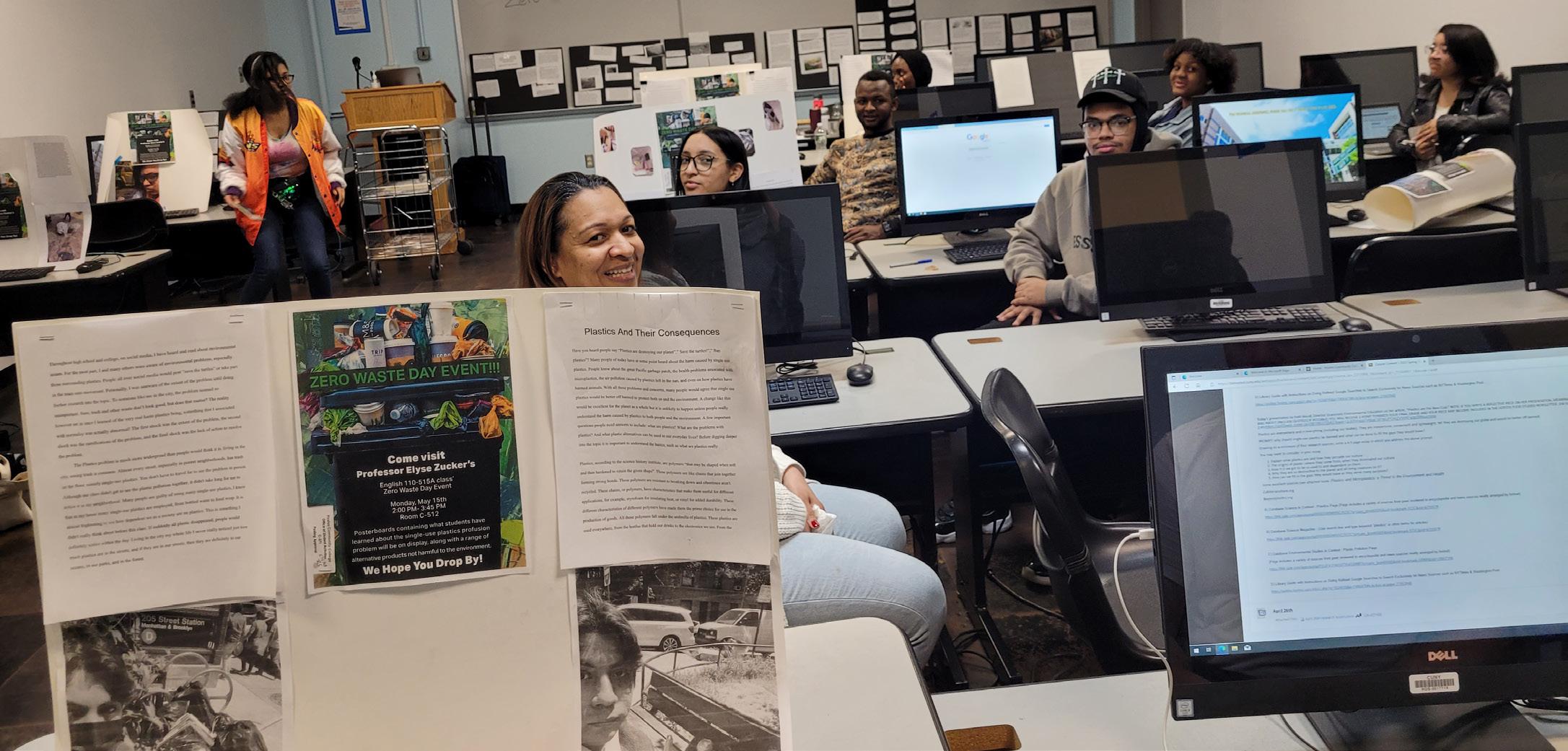
Past semesters I filled my English Expository Writing Service-Learning classes with food justice content as the venue for teaching skills. This past spring, I shifted the focus of this class to environmentalism, teaching students and having them disseminate information to the community about how deleterious single-use plastics are to the environment and all living things. I started with a unit honoring our need, as humans, to recognize and respect our relationship to the earth. Students read and wrote about American Transcendentalists Henry David Thoreau and Ralph Waldo Emerson selections, as well as Deep Ecology articles –all of which the students, though city dwellers, felt in tune with. A class to take place in Franz Sigel Park was scheduled. In juxtaposition, the next unit centered on how ravaging agro-industrial farming is to the earth and its creatures. The culminating unit brought this environmental destruction current, having students research what single-use plastics are composed of, how they came to dominate our 21st-century
lives, and what impact they are having on the environment and all it supports. Students interviewed the Hostos and local communities with questions they created to assess people’s level of awareness of and feelings about the plastics profusion problem. They then invited those on campus to our Zero Waste Day event. This event featured student research projects, interviews and reflective pieces on poster boards as well as pics of their smiling selfies in front of local cityscapes glutted with plastics. A spread of alternatives to plastics was displayed for students to explain to viewers. Included were silicone-encased glass and stainless-steel bottles, stainless-steel and paper straws, bamboo cutlery, and compostable plant-based plates. Students learned writing skills and became proactive about tackling the plastics problem. I will continue to teach this timely material as the need to acquire English skills and knowledge about single-use plastics endures. And what better way to accomplish both these goals?
10 #hostosfoodstudies
Zero Waste Day Event showcased student research, interviews, and reflective pieces, promoting alternatives to plastics and tackling the plastic waste problem.
Reflective Essay on Raising Awareness about the Plastics Profusion Problem
By Mohamed Keita, Student ENG 110 Expository Writing Skills
Learning about respecting the earth and appreciating its beauty at the start of the course was a new experience for me. I knew about ecologists but didn’t know about the concept of living in harmony with nature and even learning from nature. It was really enlightening because it opened my mind a lot to not only the topic of nature but also in general. I think it made me more accepting of abstract concepts and a less selfish person. Starting off the course studying these concepts is certainly the main reason why learning about the plastics profusion problem really pained and frustrated me.
Before this class, I knew plastics were bad, but it didn’t really bother me. It was one of those things that I thought didn’t concern me. In addition to that, doing something about it wasn’t something I considered because I used plastic a lot and found it extremely practical. As such, the replacement of plastic straws with paper straws at McDonald’s was something that bothered me as I didn’t understand why they would replace something as convenient and perfect as plastic with something as fragile and unpractical as paper.
However, after reading about plastics in class, I understood. The plastic profusion problem was deeper than I could’ve ever imagined. Learning that plastic was one of the biggest reasons behind climate change, that plastic could potentially cause cancer, and that plastic was even killing marine life was akin to a slap in the face for me. This seemingly harmless thing, that I used without any second thought, became something comparable to the likes of guns. Plastic killed humans, animals, and nature—something I learned to care about. This deeply affected me as I thought of the amount of plastic I used daily and realized that I indirectly became part of an evil process without even being aware of it.
By Ambrosia Gomez-Burgos
Student ENG 110 Expository Writing Skills
During this semester in English 110, we learned about the environment, both positives and negatives. We started learning about the positive outlook on the earth from two famous transcendentalists, Ralph Waldo Emerson, and Henry David Thoreau. They viewed the earth as something to cherish and not as something to use for one’s own selfish needs. Personally, I think that the way the course was set up from positive to negative was better to show the drastic damage happening right now. A lot of people are aware that humans are responsible for the negative environmental changes occurring, however, very few probably know the actual severity of the situation.
Before this class, I never would have known that plastic is created from natural gasses (produced by fracking sites) and chemicals (styrene, ethylene, and vinyl chloride). The chemicals can cause all sorts of health issues like cancer or infertility in women. The more I learned, the more shocked and upset I got. But I’d still rather know all this information than not because then I can inform more people of these horrible things to bring change. After interviewing people around the school and at home, I’ve learned that people know that plastics are bad for the environment but do not know how the recycling system works.
After this class, I am arguably more aware of the plastic profusion problem than I was. I believe that having an experiential component of the class was helpful in learning how to write because it makes what I am talking about more personal. It also makes it easier to explain or talk about so things flow more. The plastic issue makes me angry and depressed, in turn making my writing more passionate. When someone actually cares about what they are talking about, people are more likely to listen, and that’s exactly what having personal experiences incorporated into this class does for its students.
FOOD STUDIES NEWS 011
SOME ALTERNATIVES TO PLASTIC PRODUCTS

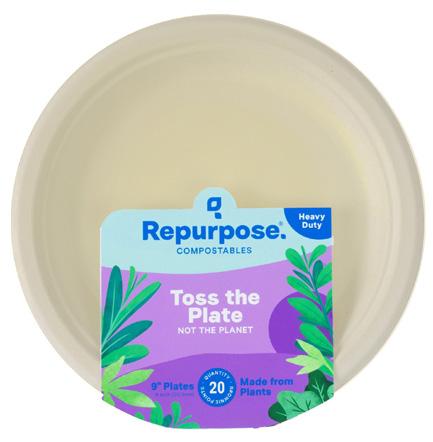




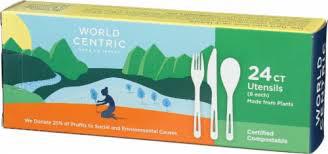

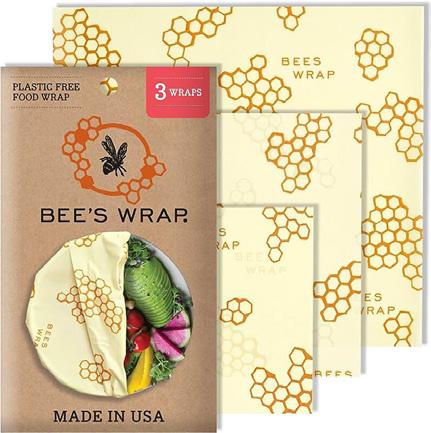

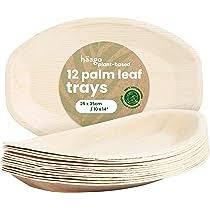



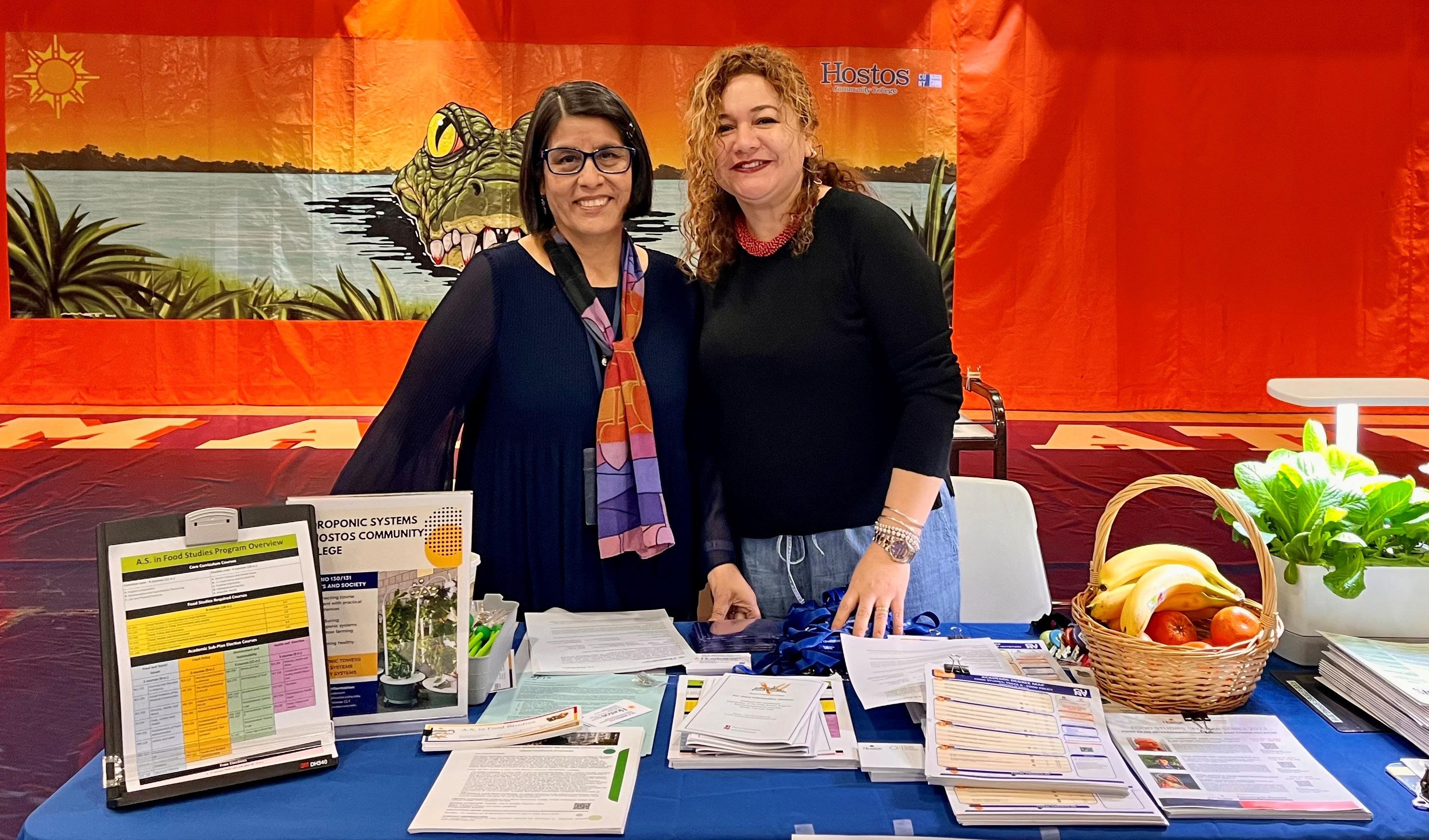
12 #hostosfoodstudies
Professor Flor Henderson and Ms. Karin Contreras promoting the Food Studies Program at an Hostos Career Fair Event.
MAKER SENFIS: NEW YORK BOTANICAL GARDEN URBAN FOODWAYS SUMMER 2022 INTERN

The first Hostos Community College student selected to participate in the summer 2022 internship was Maker Senfis. He applied for the internship after completing his course work. He valued the experience because it opened his horizons. Senfis plans to continue his studies at Lehman College. The program is offered by the Humanities Institute of the New York Botanical Garden (NYBG). It was funded by the Mellon Foundation. Throughout the course of the Internship, students from Bronx Community College, Hostos Community College and Lehman College develop skills in research, horticulture, community development, public engagement, professional development, and food sovereignty. The interns spend research time and work at the African American Garden: The Caribbean Experience and develop their individual plant-based study project with the support of the NYBG Library and Herbarium.
https://www.nybg.org/learn/humanities-

institute/research-opportunities/ FOOD STUDIES NEWS 013
Food Studies Options
» Food and Social Issues Program of Study
» Food Policy Track Program of Study
» Environment and Sustainability Track Program of Study
» Health and Nutrition Track Program of Study
» Food Studies Major Courses
» Track Specific Electives
Credit for Prior Learning
Department faculty are reviewing opportunities for students to earn credit toward this degree from prior learning experiences. Please contact the department for more specific information about earning course credits.
Career Resources
The Career Services Office at Hostos provides students with career direction and employment options through individual and group counseling, access to resources, job-readiness preparation and practical work experience. At the same time, we promote independence, professionalism and personal responsibility.
Resources for Food Studies Graduates
Hostos Community College is a partner school with the Community College Transfer Opportunity Program (CCTOP), a scholarship and assistance program for students transferring to New York University (NYU). Food Studies graduates have the opportunity to pursue a BS degree in Nutrition and Food Studies in either of two concentrations: Food Studies or Nutrition and Dietetics. For additional information contact: cctop.admissions@nyu.edu.
14 #hostosfoodstudies
GUEST SPEAKERS
February 15, 2023
“Gastronativism: Food, Power, Identity”
 By Dr. Fabio Parasecoli Department
By Dr. Fabio Parasecoli Department
of Nutrition and Food Studies, NYU Steinhardt


March 6, 2023
“Impacts of Factory Farming on the Environment and All That Lives on it”
By Ms. Claire Deshaies Factory Farming Awareness Coalition
March 27, 2023
“Food Systems and Healthy Food for ALL”
By Dr. Alfonso Morales Department
of Planning & Landscape Architecture, University of Wisconsin. Chair and Vilas Distinguished Achievement Professor— Food Systems, Marketplaces, and Public Policy.
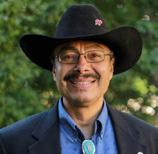
April 24, 2023
“Plastic is the New Coal”
By Ms. Patti Wood Director Grassroots Environmental Education


May 2, 2023
“Food Justice is More than Growing Food and Feeding People”
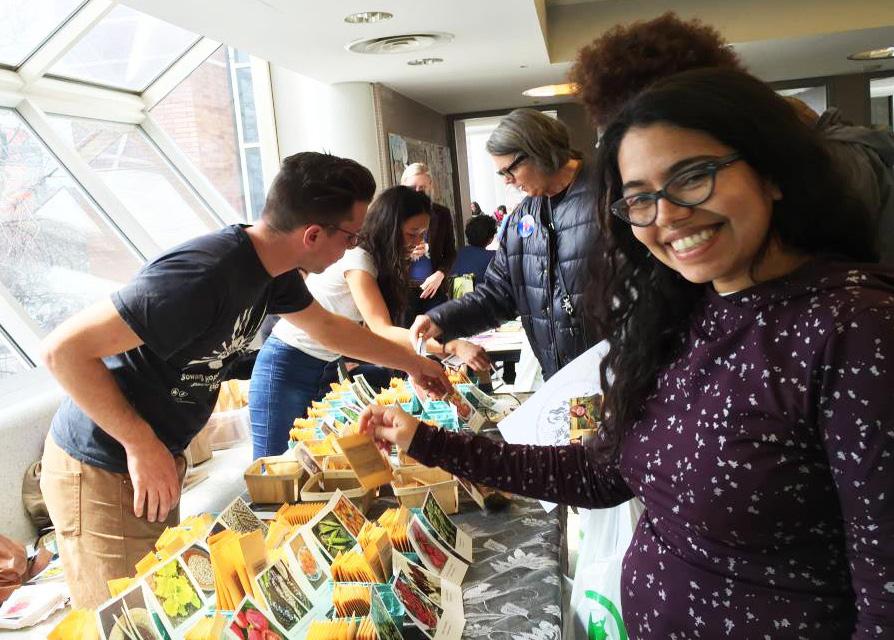 By Ms. Karen Washington Farmer and Activist. Co-owner/Farmer at Rise & Root Farm.
By Ms. Karen Washington Farmer and Activist. Co-owner/Farmer at Rise & Root Farm.

FROM THE ARCHIVE
Food Studies News | Vol. 2, June 2016
hostosfoodstudies
Attention to detail
Students working in one of the Food Studies labs are deepening their knowledge about crop diversity.
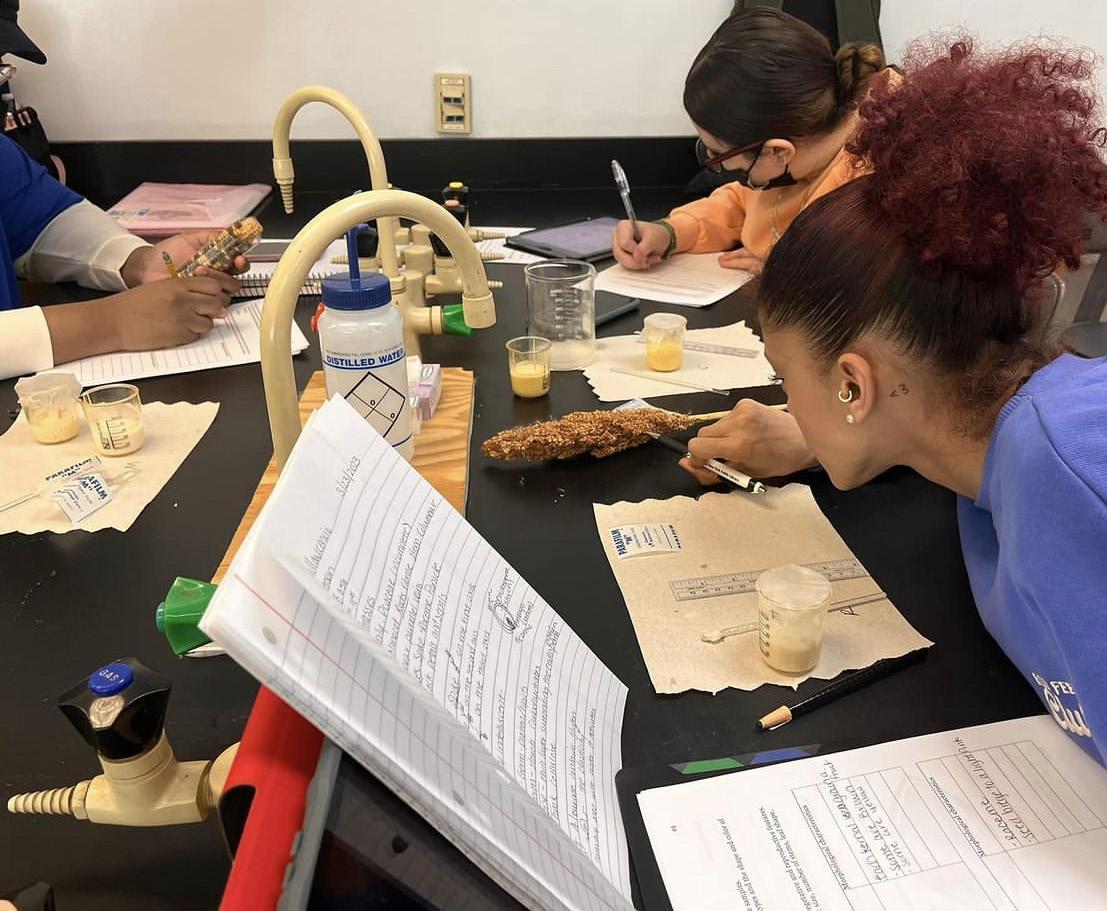
FOOD STUDIES NEWS 015
Student Sierra Lebron sampling seeds of flowers and garden vegetables at the “Green Thumb Grow Together” event held on March 16, 2016 at Hostos.
Food Studies
The Associate in Science (A.S.) Degree in Food Studies at Hostos Community College consists of 60 credits, which includes: Common Core courses required by the City University of New York; Food Studies core courses; a career practices course; and a required internship. After the first semester students select a track in one of four areas: Food Policy; Food and Social Issues; Health and Nutrition; or Environment and Sustainability. These tracks prepare graduates to transfer into four-year bachelor’s programs in food studies and related fields such as political sciences, urban studies, nutrition, and environmental studies.
El titulo académico de Asociado en Estudios Alimenticios de Hostos Community College consiste en 60 créditos, que incluyen cursos básicos requeridos por City University of New York; cursos de especialidad en Estudios Alimenticios; una practica pre-profesional. Despues del primer semestre de estudios, el estudiante selecciona una de cuatro líneas de especialidad: Política Alimenticia; Alimentación y la Sociedad; Salud y Nutrición; o Medio Ambiente y Sostenibilidad. Estas áreas de especialización preparan a los graduados para transferencias a programas de bachillerato de cuatro años en estudios alimenticios y otras profesiones relacionadas, tales como ciencias políticas, estudios urbanos, nutrición, y estudios medio ambientales.
VISIT OUR WEBSITE APPLY NOW INFORMATION
The program is open to freshmen students or current or transfer students with less than 24 credits.
Food Studies Committee
Dr. Francisco Fernandez Chairperson, Natural Sciences Department
Dr. Flor Henderson Coordinator of the Food Studies Program
Dr. Amanda Bernal-Carlo Natural Sciences Department
Dr. Elyse Zucker English Department
Follows us!
Mr. Fabian Wander Director, Health and Wellness Center
Foodstudies@hostos.cuny.edu
718-518-4142
718-664-2515
Food Studies News Editor
Flor Henderson
Editorial Design and Digital Production
José R. García
Food Studies News Contributors
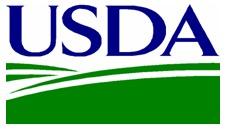
Karin Contreras
David Garcia
Ambrosia Gomez-Burgos
Flor Henderson
Sharifa Johnson
Mohamed Keita
Narell Vasquez
Melanie Villavicencio
Elyse Zucker
Natural Sciences Department
Hostos Community College
500 Grand Concourse Bronx, NY 10451
Support provided by:


ASSOCIATE
SCIENCE
IN


































 By Dr. Fabio Parasecoli Department
By Dr. Fabio Parasecoli Department





 By Ms. Karen Washington Farmer and Activist. Co-owner/Farmer at Rise & Root Farm.
By Ms. Karen Washington Farmer and Activist. Co-owner/Farmer at Rise & Root Farm.




